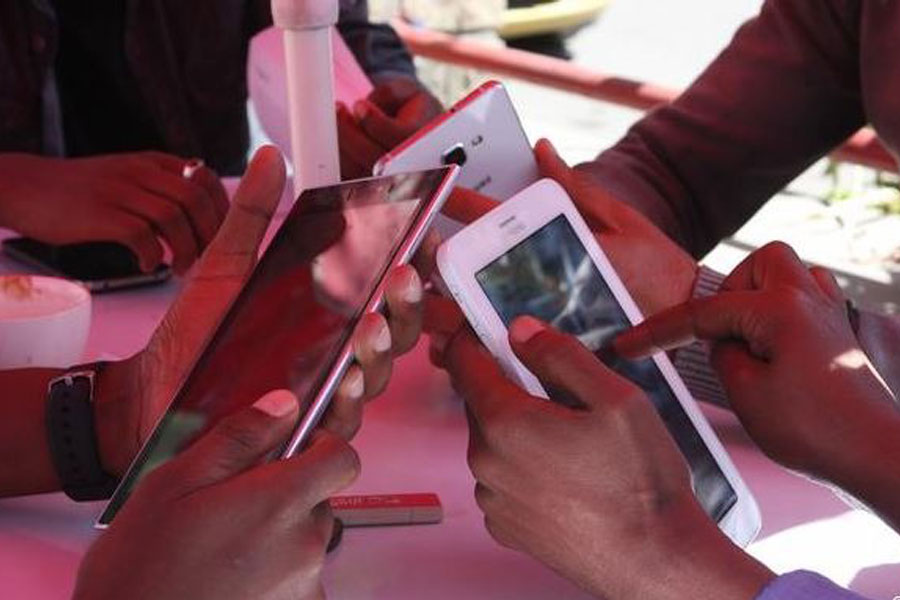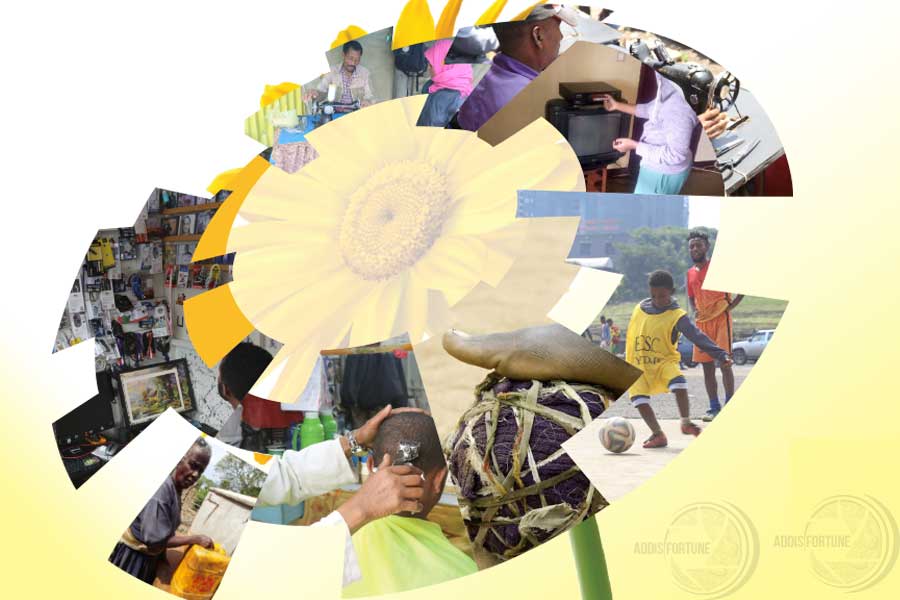
View From Arada | Jan 07,2023
Jan 16 , 2021
By Christian Tesfaye
Social media recently went into an uproar. Something terrible had happened. It had been banned in Uganda.
The country has seen polls this year, with its longtime ruler, Yoweri Museveni, facing off against the much younger musician-cum-politician Bobi Wine, who is popular with the youth. Facebook had banned accounts linked to Museveni’s re-election campaign. It seemed to be in direct response to this that the Ugandan authorities banned social media platforms such as Facebook and Twitter.
Activists see it as stifling content. It probably is. Social media has served as a platform for the expression of alternative ideas critical of those with state power. This is especially true in semi-democracies and authoritarian countries.
An excellent example is the #ENDSARS campaign, which sought to highlight and push against Nigeria's allegedly corrupt elite police force, the Special Anti-Robbery Squad (SARS).
It was a campaign that succeeded in introducing the world to their frustrations and outcry. It succeeded in forcing through the dismantlement of the police force by the government, though a new organisation replaced it.
These platforms are not invaluable. But few things are ever wholly useless. Some purpose is served, especially if they were created with a certain level of good intentions behind them. For the likes of Facebook and Twitter, it is to make the world more connected, engage us more in one another’s lives.
It has not been going as planned, to put it mildly. Today, these platforms exercise an unprecedented amount of power over the public. There is not all that much debate over this anymore, especially in more democratic societies. There is an emerging consensus that at least a certain level of policing is required, like flagging fake news.
It was why progressives rejoiced when President Donald Trump was booted from Twitter and Facebook, because they believed that he could utilise the power these platforms afford him to subvert American democracy. It was an acknowledgement of social media's unchecked power, which more often than not inspires the worst in society.
Combined with election seasons, it could be a sure recipe for violence. In Africa, elections are already violent. The Nordic Africa Institute looked at 50 elections for the six years until 2017. It found that nearly all of them saw some violence.
Social media platforms can make it especially violent if care is not taken. The same institute notes: “Violent discourse can be effective in mobilising political campaigns, especially in political environments coloured by ethnic and regional stereotypes and a previous history of conflict.”
But is violent discourse a result of social media? Is the manner of engagement on social media not just a consequence of the actual state of our politics?
There is some truth to the statement, but social media itself contributes to discord. This is because of how it works as a business.
Social media platforms trade in attention. It is a commodity that they sell to advertisers. Thus, the content needs to be as exciting and fascinating as possible to keep our eyeballs glued to the screen, metaphorically. It if it too boring, who knows, we may start reading books.
And what gets peoples’ attention?
Populists, proselytisers and Hollywood movie producers have long figured out the answer. What gets attention is violence; something that preys on our fears and prejudices; anything sensational and conspiratorial. The content has got to sell. It has got to keep people coming back for more.
Taking it to another level, the tech giants behind our favourite social media platforms collect an unprecedented amount of data from us and run them through complex algorithms so they can accurately tell just what makes us tick. It is an awesome power that populists, priests and Hollywood producers have only dreamed of possessing.
Unfortunately, this is entirely incompatible with democracy or the notion of constructive debate. It cannot happen when people are increasingly suspicious of one another.
All of this does not mean that social media should be banned, especially in countries that have not matured into democracies. It should not be a debate between allowing social media platforms to exist or not. In fact, restrictions to the likes of Facebook and Twitter may boost alt-tech social media sites that are much less accountable, like Parler and Gab.
Banning is not an answer. But the discussion needs to take place on how social media platforms can be used more constructively.
PUBLISHED ON
Jan 16,2021 [ VOL
21 , NO
1081]


View From Arada | Jan 07,2023


Life Matters | Jan 07,2022

Commentaries | Jul 22,2023

Sunday with Eden | Jul 08,2023

Viewpoints | Sep 10,2021

Agenda |

My Opinion | Jul 29,2023

Fortune News | Sep 08,2019

Commentaries | Feb 05,2022

Photo Gallery | 174939 Views | May 06,2019

Photo Gallery | 165164 Views | Apr 26,2019

Photo Gallery | 155428 Views | Oct 06,2021

My Opinion | 136746 Views | Aug 14,2021

Dec 22 , 2024 . By TIZITA SHEWAFERAW
Charged with transforming colossal state-owned enterprises into modern and competitiv...

Aug 18 , 2024 . By AKSAH ITALO
Although predictable Yonas Zerihun's job in the ride-hailing service is not immune to...

Jul 28 , 2024 . By TIZITA SHEWAFERAW
Unhabitual, perhaps too many, Samuel Gebreyohannes, 38, used to occasionally enjoy a couple of beers at breakfast. However, he recently swit...

Jul 13 , 2024 . By AKSAH ITALO
Investors who rely on tractors, trucks, and field vehicles for commuting, transporting commodities, and f...

Oct 18 , 2025
The political establishment, notably the ruling party and its top brass, has become p...

Oct 11 , 2025
Ladislas Farago, a roving Associated Press (AP) correspondent, arrived in Ethiopia in...

Oct 4 , 2025
Eyob Tekalegn (PhD) had been in the Governor's chair for only weeks when, on Septembe...

Sep 27 , 2025
Four years into an experiment with “shock therapy” in education, the national moo...

Oct 18 , 2025 . By NAHOM AYELE
In a sweeping reform that upends nearly a decade of uniform health insurance contribu...

Oct 18 , 2025 . By BEZAWIT HULUAGER
A bill that could transform the nutritional state sits in a limbo, even as the countr...

Oct 18 , 2025 . By SURAFEL MULUGETA
A long-planned directive to curb carbon emissions from fossil-fuel-powered vehicles h...

Oct 18 , 2025 . By BEZAWIT HULUAGER
Transaction advisors working with companies that hold over a quarter of a billion Bir...